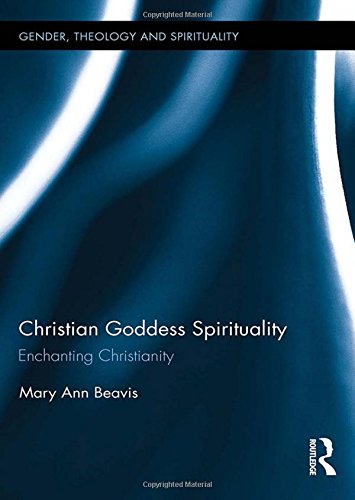

Most ebook files are in PDF format, so you can easily read them using various software such as Foxit Reader or directly on the Google Chrome browser.
Some ebook files are released by publishers in other formats such as .awz, .mobi, .epub, .fb2, etc. You may need to install specific software to read these formats on mobile/PC, such as Calibre.
Please read the tutorial at this link: https://ebookbell.com/faq
We offer FREE conversion to the popular formats you request; however, this may take some time. Therefore, right after payment, please email us, and we will try to provide the service as quickly as possible.
For some exceptional file formats or broken links (if any), please refrain from opening any disputes. Instead, email us first, and we will try to assist within a maximum of 6 hours.
EbookBell Team

4.8
64 reviewsThis monograph focuses on "Christian Goddess Spirituality" (CGS), the phenomenon of (mostly) women who combine Christianity and Goddess Spirituality, including Wicca/Witchcraft. Mary Ann Beavis’s study provides ethnographic data and analysis on the lived religious experience of CGS practitioners, drawing on interviews of over 100 women who self-identify as combining Christianity and Goddess spirituality. Although CGS also has implications for Goddess Spirituality and related traditions (e.g., Neopaganism, Wicca), here, CGS is considered primarily as a phenomenon within Christianity. However, the study also shows that the fusion of Christian and Goddess spiritualties has had an impact on non-Christian feminist spirituality, since Goddess-worshippers have often constructed Christianity as the diametrical opposite and enemy of the Goddess, to the point that some refuse to admit the possibility that CGS is a valid spiritual path, or that it is even possible. In addition, biblical, Jewish and Christian images of the divine such as Sophia, Shekhinah, the Virgin Mary, and even Mary Magdalene, have found their way into the "Pagan" Goddess pantheon.
The main themes of the study include: overlaps and differences between Christian feminist theology and CGS; the routes to CGS for individual practitioners, and their beliefs, practices and experiences; proto-denominational classifications ("spiritual paths") within CGS; CGS thealogy (Christian discourse about the female divine); and the future of CGS in social scientific and ecclesiological context. Christian Goddess Spirituality will be of interest to scholars of religion, especially those with interests in women and religion, feminist spiritualities, feminist theology/thealogy, alternative spiritualities, New Religious Movements, and emergent Christianities.